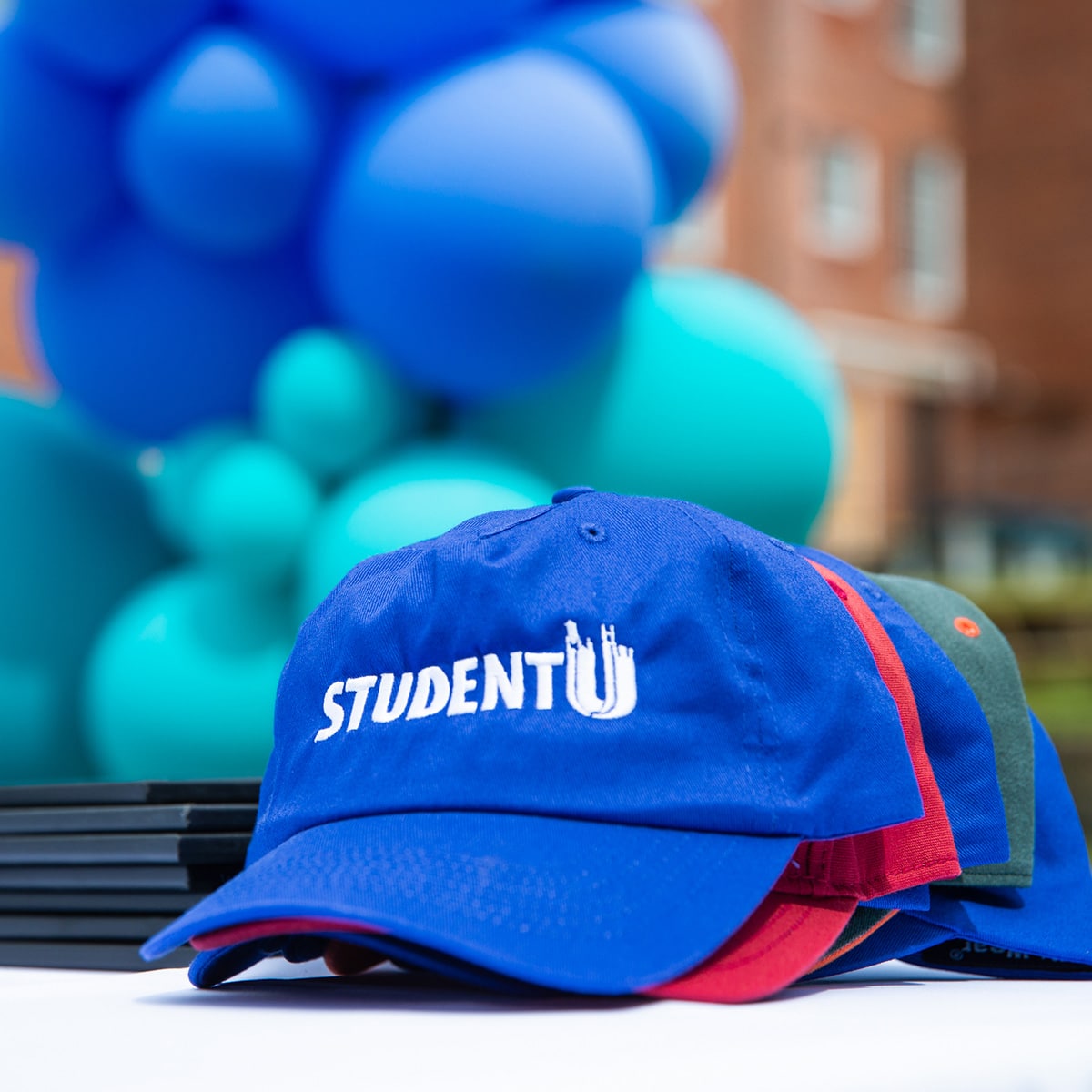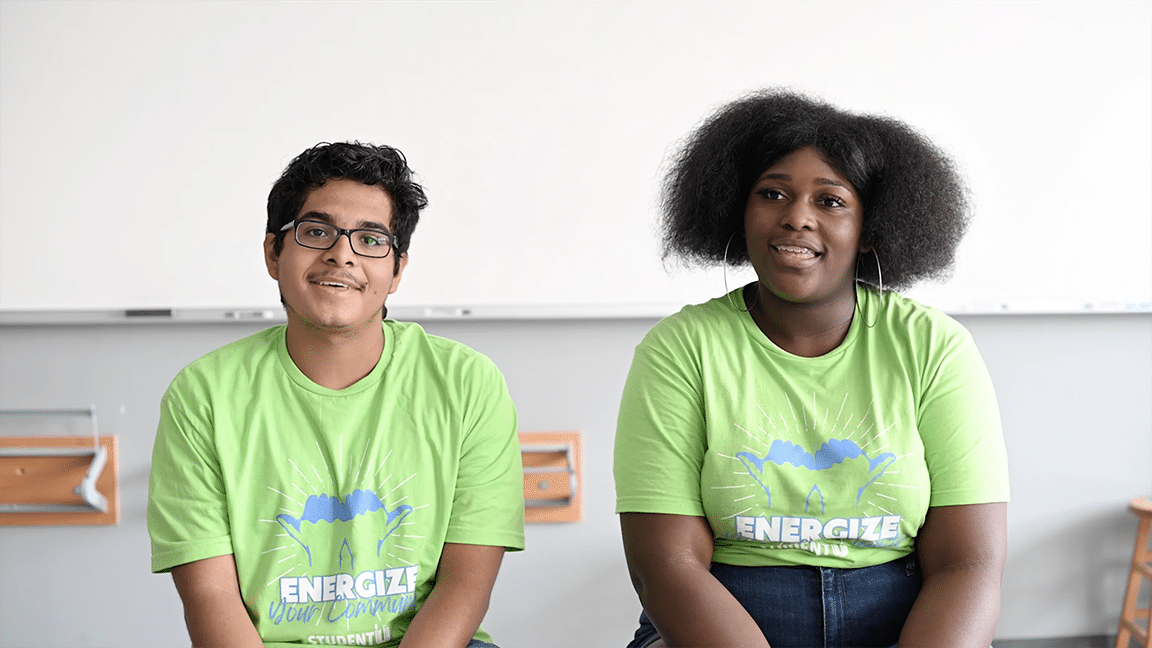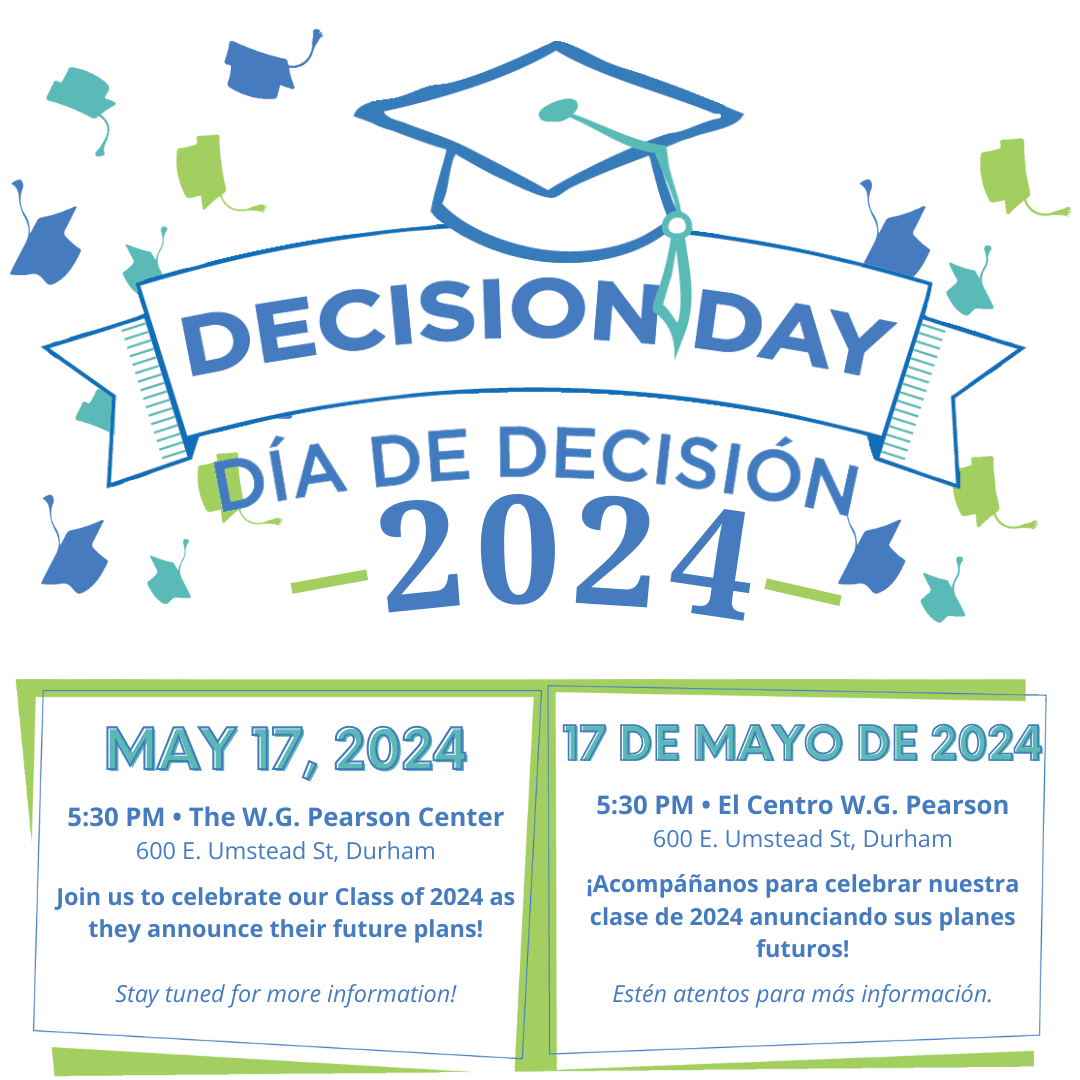 Youth Work 101: Supporting First-Generation College Students
Youth Work 101: Supporting First-Generation College StudentsBy: Elena Maina, Bianca Lambert, Connor Kirkpatrick
Welcome to the Youth Work 101 Series! Student U started this blog series to support youth work practitioners, educators, advocates for young people, and after-school professionals in their work by sharing what has worked for us and by offering free resources each month on a best practice. Click here for this month’s resource for youth workers.
This month’s blog on Supporting First-Generation Students is paraphrased from an interview with Elena Maina, Student U’s Associate Director of College Advising and Success, with additional collaboration from Bianca Lambert, Student U’s College Success Coordinator, and writing by Connor Kirkpatrick, Student U’s Advancement Writing Associate.
Hello and Happy March! My name is Elena Maina and I work at Student U as the Associate Director of College Advising and Success and I am the proud mom of two kids. 2020 has already been a big year for Student U. You may have noticed that our website and logo look a bit different! Recently, we revealed a new mission statement and strategic approach to our work at one of our most successful fundraising events to date.
I left this event feeling intensely excited about the new direction we were taking, along with carrying a bit of heavy happiness as this new path we are embarking on feels so important to this moment. I was feeling so proud of where I work and when I walk through the door, my three year old, Elián, is also extremely excited, but for a different and more obvious reason. He is excited because I have walked through the door with some balloons that have been left over from the event. He loved those balloons so much he wanted to sleep with them. In the morning, one of the balloons had sunk a little bit, and immediately my kids asked me, “How do I get the balloon back high in the air?” This moment really put things back in perspective for me. I looked at my child and thought, “You are a young, beautiful child with an appreciation for small, beautiful elements of life.” That made me stop and appreciate the significance of the mission reveal, but also made me think, do I pay attention to the small things that are also beautiful and joyful? Being around children and young people is the best because they slap you in the face with balloons and appreciate the joy of something so small.
So back to Student U’s reveal, we announced our new mission statement:
We empower and equip first-generation college students in Durham Public Schools, their families, and educators to become the leaders that will transform our city.
This new mission statement is a big deal because we are specifically naming first-generation students, their families, and educators as the primary population we work with, and there’s a lot of potential here. When we use the term “first-generation,” we mean that the students we work with will be the first in their family to graduate college. Why is this powerful? Well, to be the first in your family to go to college is both a little daunting, but also hopeful and uplifting. The term “first-generation” can also be empowering for students. “First-generation” is a positive and future-looking term that acknowledges the struggles our students experience, but does not define them by these circumstances.
Now that we’ve named the first-generation students as who we work with, we want to name three common areas that we see as challenges for our first-generation students, and how these students need support.
1. Financial Barriers – One of the challenges first-generation students face is figuring out how to pay for college. College is expensive, and when a student doesn’t have liquefiable assets in the family to offset college costs, they may not be able to continue their degree. The higher education system is simply not set up in a way that forgives small financial discrepancies. At most institutions, if you do not pay your tuition installment, you can be dropped from your classes. Even if the installment is a small amount of money, it can still be enough to force a student from pursuing higher education.Another major financial barrier is coming up with unexpected costs for college applications and enrollment fees that have to be paid for outside of financial aid packages. Most college applications cost $30 to $100 each, and once admitted, most institutions require students to pay an enrollment deposit of $100 to $300 to hold their spot. Prior to attending in the fall, students must pay a $100-$200 housing deposit to get a dormitory and usually a $100-$200 fee to attend mandatory summer orientation. All of these costs come around the same time that students are paying for senior portraits, senior prom, and high school graduation ceremonies. There is an unfortunate phenomenon in higher education called “summer melt” where a student who has been admitted to college in the spring “melts” in the summer and doesn’t show up to campus in the fall. One of the largest contributing factors to summer melt is the inability to cover the financial costs just explained. And of course, this hits students who have limited financial resources the hardest.Because of all of these costs, many students will take part-time jobs while also being a full-time student to support themselves. A common experience for first-generation students is that many feel the responsibility to support their families financially while in college. While these challenges definitely shape the first-generation college experience, there is also a lot of ownership that first-gen students feel towards our education, and paying for these expenses on their own can be a source of pride in overcoming this challenge.
2. Access to Knowledge – The second challenge that first-generation students must overcome is acquiring knowledge about higher education. While most first-generation families are excited and eager to support their students’ journey to college, many do not know exactly how to support their students because they have not walked that path yet. This means that first-generation students do not have the luxury of trial and error that students whose parents went to college have. And the college application and enrollment process is a beast to navigate with many nuances that can trip someone up. Having someone who is familiar with the process guide you through can be invaluable. Many times if a student doesn’t have access to a great counselor or teacher because our school systems overwork and underpay them, they may not know how to find a best-fit school or understand their school options. What happens if I fail a class or change my major? How do I find scholarships and funding for college? These are questions that many first-gen students have to discover the answers to on their own. Our families care deeply about their child succeeding and are their biggest cheerleaders, but many times they are not sure of the best way to support their child through these questions.The good news is, once you know and have access to information, you will always know it! Just like learning to ride a bike or mastering how to do long division, when you understand what the FAFSA is for and when to apply for it, you can keep that knowledge and can pass it to others. At Student U, we tackle these things together and learn alongside our families. When one student experiences the college process, the whole family learns, and that’s an exciting process we get to be a part of.
3. Self-Identity – Finally, I want to take a moment and talk about a struggle that our students face in discovering their “first-generation” identity. Many of our students talk about family pressures and the guilt and the shame associated with being a first-generation college student. They feel an immense pressure to “make us proud” and be strong. It requires a state of vulnerability to ask someone to help you overcome challenges or share your concerns with, and that is something I felt when I didn’t know the financial nuances. I would be embarrassed that I didn’t know how reimbursements worked or how to navigate the FAFSA application. To students who may be feeling this embarrassment, I want to say: Our society may tell us that strength is knowing all of the answers and coming out in first place. But I believe that strength is actually reaching out for support and guidance when you feel unsure of yourself. People who do this are the ones that grow and learn.
Embarking on the college journey can be both terrifying and exhilarating. I’m proud of our first-generation students for stepping up and being willing to go through those hills and valleys. I know that students can step onto their college campus, look around, and feel like they are the only person who has questions, struggles with finances, and is unsure which office to go to for help. To them, I say: you are not alone. The great thing about Student U is that we stand together. Even though our college students attend different campuses, we are a family, and we stand together through the whole college process, no matter what that path looks like. While going to college is a big success for you individually, in some ways it can be an even bigger success for your family, siblings, aunts, and uncles. Many of our families pushed so you can thrive, and you are doing it! Stay strong!
How Can You Support First-Generation Students?
First, listen. Listen to first-generation students and ask for their truth. Let their experiences and needs guide your work and shape your own understanding of the systems they are navigating. We each have our own style in how we work with students, so use your experiences to draw on and tap in other professionals when you need support. Build strong relationships with students, and connect them to high-quality resources they can pull on, whether those are scholarships, resource guides, or mentors. Having a good relationship with students is the foundation because they will be more willing to share triumphs and struggles. See the resource and further readings we have below to help you in your journey.
Resource:This month we are offering a month-by-month Guide to Common Issues & Concerns for First-Year College Students. This is a helpful resource to help discuss with incoming college students about the highs and lows of their academic year. Click here to go to this resource.
Further Reading:
- The Center for First-Generation Student Success is a great source of evidence-based practices, professional development, and knowledge creation for the higher education community to advance the success of first-generation students.
- Dr. Eve Hudson from Charlotte, NC hosts a podcast called The First-Gen Lounge that highlights the experiences of first-gen students. It’s pretty great.
Until next month!
—
Donate to Student U and keep posts like this one coming.
Subscribe to this blog by entering your email to download the resource above.












